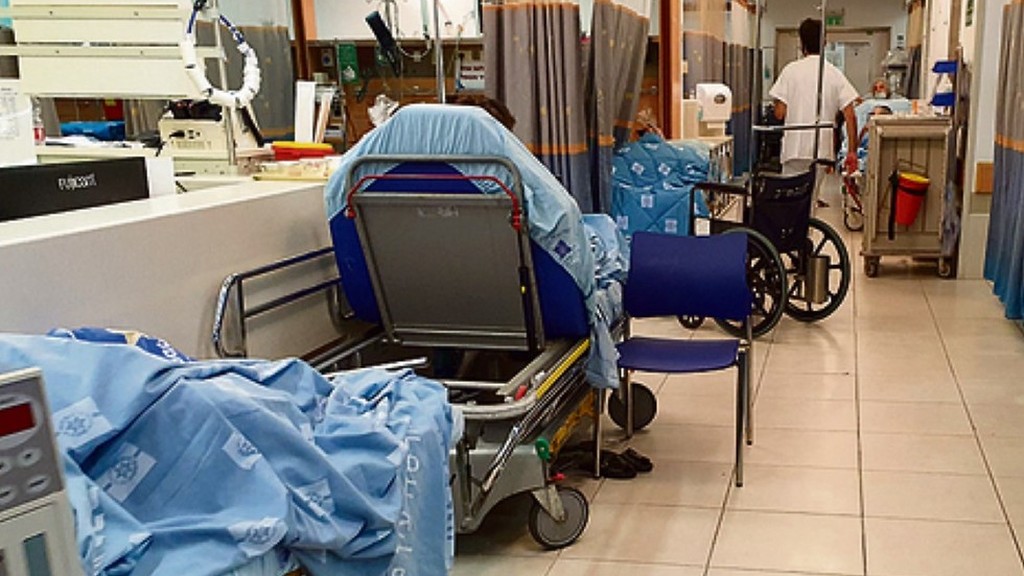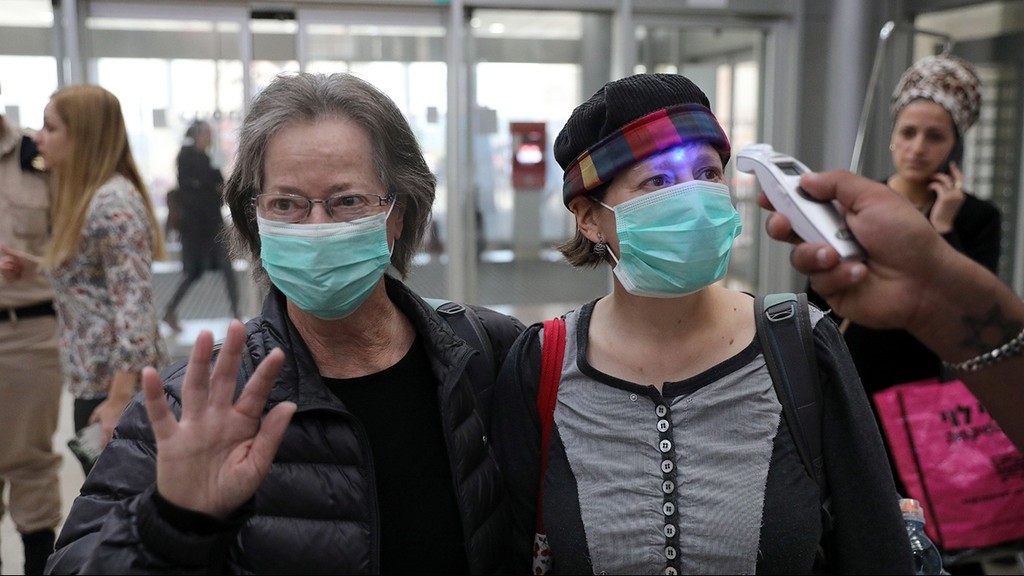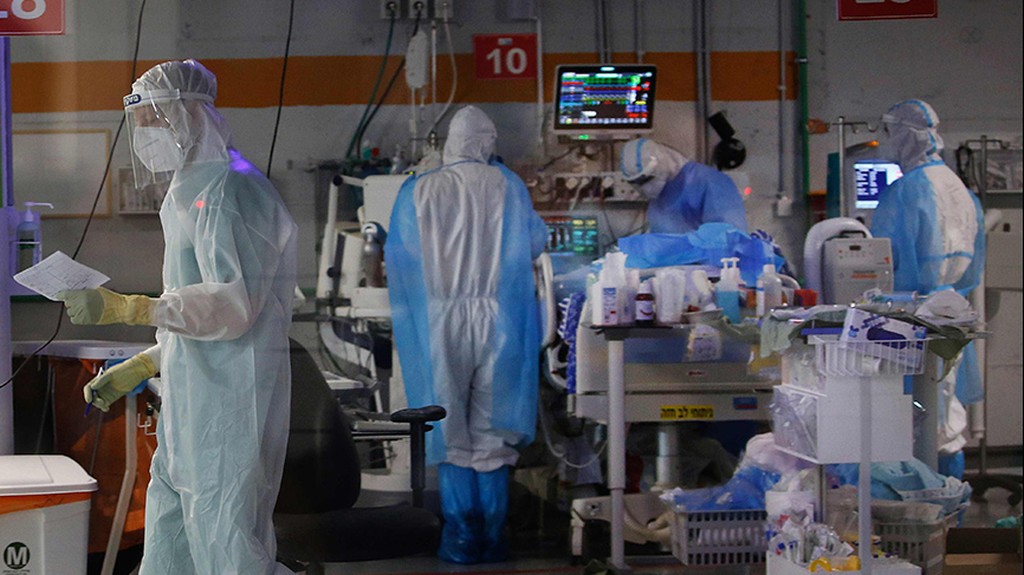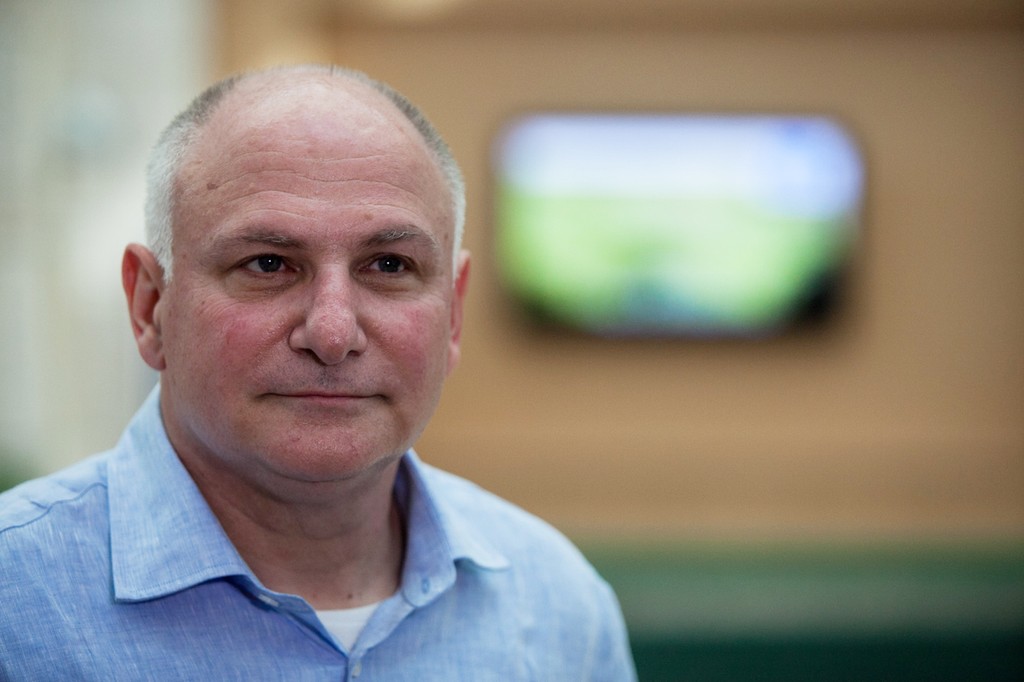Getting your Trinity Audio player ready...
As the second wave of the coronavirus pandemic causes infection rates across Israel to grow at an exponential rate, more and more hospitals across the country are simply failing to cope with the surge of COVID-19 patients.
Despite the slight decrease in the number of seriously ill patients, the number of newly infected is climbing.
Some hospitals have even begun releasing geriatric patients and those whose condition can be categorized as "mild" to their homes, in order to lighten the load and make room for any incoming coronavirus patients.
Despite their efforts, new data released by the Health Ministry show that the heavy loads in hospitals are only getting worse.
Four hospitals have already reported their occupancy limit has been reached: Hadassah Medical Center and Shaare Zedek Medical Center in Jerusalem; Shamir Medical Center in Tzrifin, and Sheba Medical Center in Tel Hashomer, which is Israel's biggest hospital and one of the highest ranked in the world.
4 View gallery


Patients' beds are placed in the hallway at one of Israel's hospitals as coronavirus cases surge
(Photo: Shalev Shalom)
The situation in Hadassah is especially dire, as the hospital has reached 164% occupancy in its coronavirus wards, and 113% occupancy overall. Shaare Zedek and Sheba have reached 102% occupancy and Shamir is at 126%.
In order to try and ease the load, Hadassah has begun transferring all new patients to healthcare facilities in Israel's central district.
4 View gallery


Visitors have their temperature checked at the entrance to Hadassah Medical Center in Jerusalem
(Photo: EPA)
"In accordance with the Health Ministry, we occasionally transfer patients to hospitals in central Israel," said Hadassah Director Prof. Yoram Weiss.
"On Monday morning we had one bed available in all of our coronavirus wards. We are currently preparing to open additional wards. The moment we are full though, we transfer patients to the Tel Aviv area."
Weiss said he believes the overload in Jerusalem hospitals is due to the extremely high rate of infection in the capital and nearby localities.
"The infection rate in Jerusalem is high," said Weiss.
"The difference this time, though, is that the infection rate is high in all the population groups in the area. This includes East Jerusalem and all neighboring localities. If in the past the outbreak was in specific neighborhoods, today the outbreak is happening in every neighborhood in the area."
"There is a finite number of medical staff," said Weiss. "Those same staff have to care for both those ill with coronavirus and those who suffer from other ailments, and these two groups are quite significant in number."



